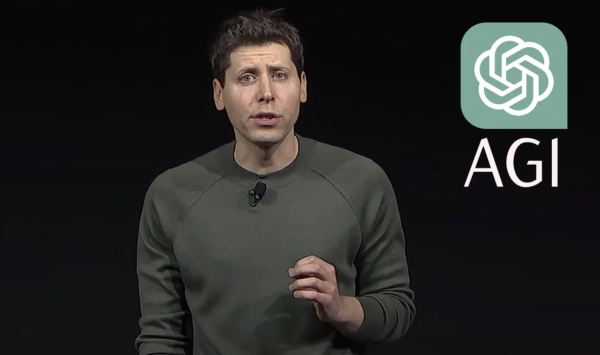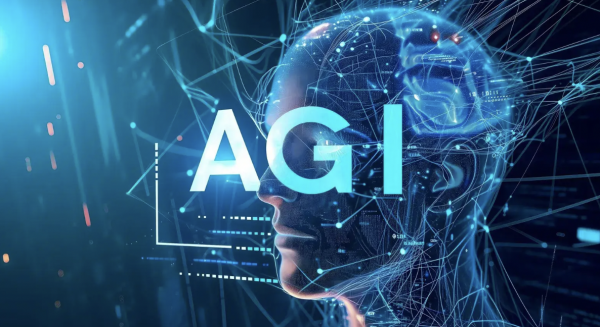Sam Altman's Insights on AI Economics: What Lies Ahead?
![]() 02/11 2025
02/11 2025
![]() 473
473
Our mission is to ensure that Artificial General Intelligence (AGI) benefits all of humanity.
As systems approaching AGI gradually emerge, it is imperative to comprehend the epoch we are in.
AGI, a broadly defined concept, generally encompasses systems capable of solving complex problems at human levels across multiple domains.
Humans, inherently creators of tools, are driven by a profound desire for exploration and innovation. This impetus propels the world forward. Each generation builds upon the achievements of the previous one, inventing increasingly powerful tools—from electricity, transistors, computers, the internet, to the impending AGI.
While the pace of human innovation varies, our society as a whole is progressing towards greater prosperity at an unimaginable speed, enhancing almost every facet of people's lives.
In a sense, AGI is merely another stepping stone on the lengthy ladder of human technological progress. However, from another perspective, its emergence signifies a pivotal moment—we must admit, "This time, it's truly different."
The economic growth before us is breathtaking. We can even envision a future where all diseases are cured, we have more time to spend with family, and everyone's creativity can be fully realized.
Perhaps in another decade, everyone on Earth will be able to surpass the most successful individuals of today.
Our understanding of AI is rapidly evolving, and its economic influence is gradually becoming evident. In this process, we have observed three significant trends:
1. The intelligence of AI models largely depends on the logarithm of the resources consumed for their training and operation. These resources primarily encompass training computational power, data, and inference computational power. In other words, the more funds invested, the more predictable and sustained the enhancement of AI capabilities becomes. Currently, the relevant scaling laws have been verified across multiple orders of magnitude.
2. The cost of using AI declines by approximately a factor of 10 each year, fostering widespread adoption. We are witnessing a remarkable decline in the cost of utilizing AI. For instance, from GPT-4 in early 2023 to GPT-4o in mid-2024, the unit computation cost dropped by roughly 150 times. In comparison, Moore's Law states that processor performance doubles approximately every 18 months, but the decline in AI costs far surpasses this rate, leading to even more dramatic changes.
3. Linear improvements in intelligence levels often result in super-exponential economic returns. This implies that in the foreseeable future, capital investment in AI will continue to accelerate, as the benefits vastly outweigh the inputs.
If these three trends persist, the societal impacts will be profound.
Furthermore, we are now initiating the introduction of AI agents, which, as they gradually enter practical applications, may integrate into human work as virtual colleagues in the future.
Imagine future AI engineer agents capable of completing most tasks that a top-tier corporate software engineer could accomplish in a few days.
Although it may not possess the most groundbreaking innovative ideas, requiring human oversight and guidance, and may excel at some tasks while struggling with others, its overall capabilities are sufficient for numerous professional jobs.
Taking it a step further: what if we don't just have one such agent, but 1,000, or even a million? And imagine deploying such agents across various knowledge-based industries—what kind of transformation would this entail?
From an economic perspective, AI may become a scientific breakthrough akin to transistors, permeating various fields. Today, we don't deliberately focus on transistors or companies that produce them, but they are deeply embedded in our computers, TVs, cars, toys, and various other devices, making everything smarter.
Of course, society won't change drastically overnight. In 2025, people's lifestyles will largely resemble those of 2024. We will still fall in love, start families, engage in heated online debates, go hiking, and more.
However, the future is approaching in a manner that cannot be ignored. In the long run, the changes in social and economic structures will be immense.
With the advancement of AGI, we must discover new ways to create value. Perhaps future work will be vastly different from today's forms. Willpower, initiative, and adaptability will become increasingly important, as will making the right decisions about what to do and how to move forward in a constantly evolving world.
AGI will not diminish individual influence; rather, it will become the ultimate "lever" for human will, empowering individuals with unprecedented capabilities and influence.
Of course, the impact of AI is uneven. Some industries may experience minimal change, while the pace of scientific progress is expected to accelerate far beyond today's rates. The influence of AGI may surpass everything else.
In the future, the prices of many commodities will drop significantly (currently, intelligence and energy costs are the primary constraints hindering the development of many industries), but the prices of scarce resources like luxury goods and land may rise instead.
The path of technological development is relatively clear, but integrating AGI into society requires careful consideration of public policies and social consensus. Therefore, we continue to introduce AI products to enable society and technology to co-evolve.
AI will gradually permeate various sectors of the economy and society, and people will expect everything to become intelligent.
We may need to provide individuals with more control over AI technology, such as through increased open-sourcing, balancing security with individual empowerment.
We always adhere to caution, and while we may make some unpopular but crucial decisions and restrictions regarding AGI safety, overall, as we gradually approach AGI, we believe it is crucial to lean towards giving individuals more autonomy.
However, another possibility is that AI could be exploited by authoritarian governments, depriving individuals of freedom through mass surveillance—a direction we clearly wish to avoid.
We consistently emphasize that the benefits of AGI should be widely accessible to all.
Historically, technological progress tends to improve health outcomes, enhance economic prosperity, and other indicators, but it does not automatically lead to more equitable distribution. This means we need new ways of thinking to ensure technological fairness.
One key issue is that the balance between capital and labor may be disrupted, so we may need to intervene early.
For example, we can consider seemingly "radical" ideas, such as providing a certain computational budget to everyone globally to enable efficient AI use by all, or minimizing the cost of intelligence to make it ubiquitous.
Our vision is that by 2035, the intelligent resources available to any individual will rival the combined wisdom of all humanity in 2025, enabling everyone to freely harness boundless wisdom and realize their imagination.
Currently, a vast amount of talent remains underutilized due to a lack of resources. If we can change this, the global explosion of creativity will bring immeasurable benefits.
Original source:
1. https://blog.samaltman.com/three-observations
The Chinese content is compiled by the MetaverseHub team. Please contact us for reprints.








